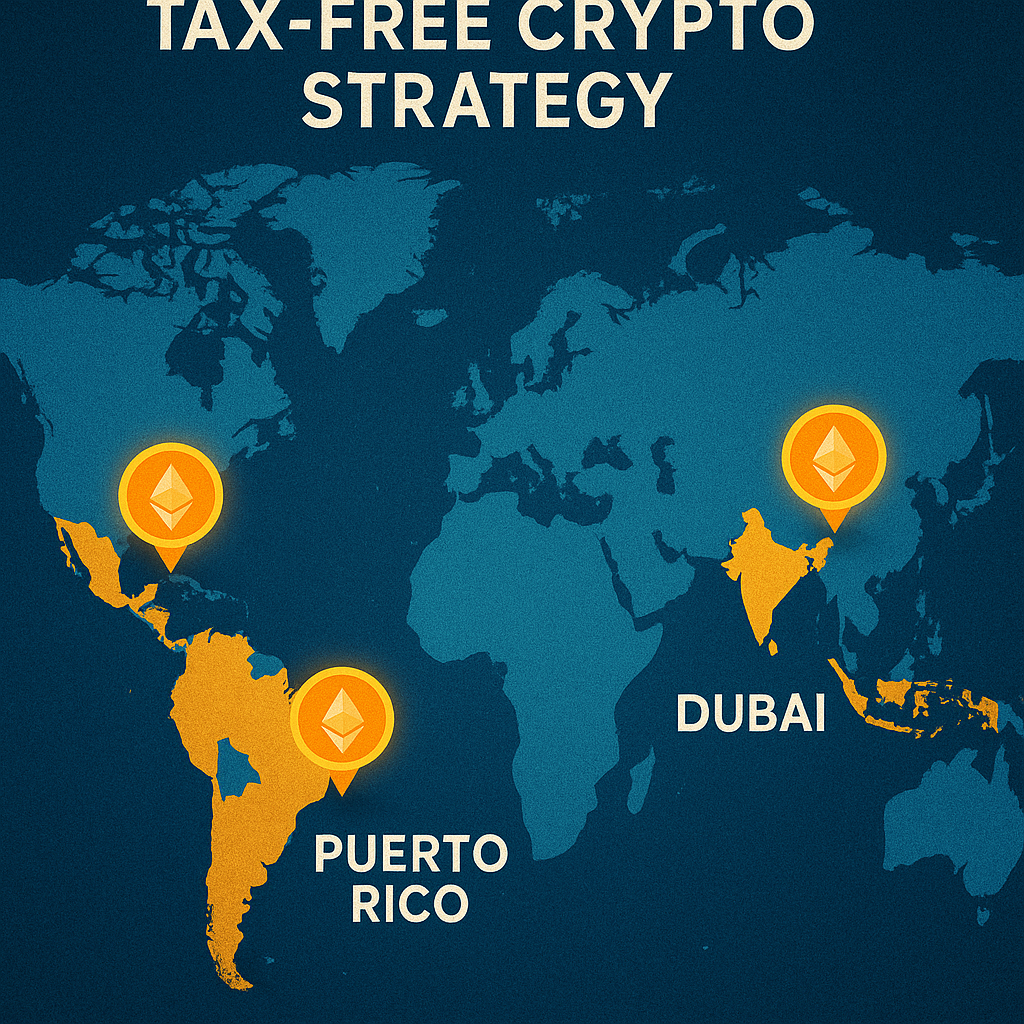
Cashing out crypto sounds simple at first. You build up Bitcoin, Ethereum, or altcoins, then one day you decide to take profit. But the moment you try to move those coins into your bank, reality hits. Taxes take a huge bite, banks raise red flags, and suddenly your hard-earned gains look a lot smaller.
In many countries, selling crypto is treated like selling property. That means every time you swap, sell, or even spend it, you trigger a taxable event. Depending on where you live, that bill can range from 15% to over 40%. For big cash-outs, banks will also start asking questions, and governments are watching more closely than ever.
The good news? There are still smart ways to cash out crypto without paying taxes – at least legally. There are also a few methods that let you cash out small amounts anonymously without handing over your ID. In 2025, the landscape has shifted, but the playbook that wealthy investors and crypto veterans use is still very much alive.
Let’s break it down step by step.
What you'll learn 👉
The Problem With Cashing Out Crypto
The biggest issue with crypto cash-outs is taxation. In most places, governments treat it as capital gains. If you bought Bitcoin at $20,000 and sell at $100,000, that $80,000 difference is taxable. Do this a few times and you could end up losing nearly half of your stack to the taxman.
Another challenge is the banking system. Large transfers from crypto exchanges like Binance or Coinbase often trigger fraud alerts or compliance checks. Imagine wiring $100,000 into your account overnight – your bank will almost certainly demand proof of source, and tax authorities may follow soon after.
That’s why more and more investors are looking for ways to either stay off the radar or structure their cash-outs in a way that helps them avoid crypto taxes legally.
Cashing Out Crypto Anonymously in 2025
Some people don’t want to move abroad or deal with complex setups. They just want to turn coins into cash without sending their passport to another exchange. That’s still possible, though with limits.
P2P Marketplaces
Peer-to-peer trading platforms remain one of the most common ways to cash out privately. Platforms like Paxful or Bisq let you sell Bitcoin or stablecoins directly to another user. The platform holds your coins in escrow until payment is received. Payment can come via bank transfer, PayPal, or even cash apps.
But there’s a catch. Even if the exchange itself doesn’t ask for KYC, the payment service usually does. That means your details are still tied to the transaction. For true anonymity, you’d need to stick to cash payments – but those carry more risk.
In-Person Cash Deals
Some traders still prefer the oldest method: meeting face to face and trading crypto for physical cash. No banks, no records, just trust. It’s one of the only ways to walk away with completely untraceable money. But it’s also risky. You have to pick a safe, public place and deal only with trusted contacts.
Bitcoin ATMs
Crypto ATMs are scattered across cities worldwide. They allow you to send Bitcoin and withdraw cash instantly. For small amounts – often up to $200 a day – no ID is required. The downside is high fees, usually 8–10%. They’re convenient for quick, anonymous withdrawals, but impractical for serious money.

Gift Cards and Vouchers
Another option is converting crypto into store vouchers. Platforms let you buy Amazon, Walmart, or other gift cards directly with Bitcoin or USDT. It’s not exactly cash, but it lets you spend crypto without going through banks. For many, this works as a workaround for daily expenses.
No-KYC Crypto Cards
Some crypto debit cards allow you to load funds without full KYC, at least for small limits. You can spend them like normal Visa or Mastercard cards. Most have daily or monthly caps of a few hundred dollars, so they’re not a full solution – but they do help maintain privacy for smaller needs.
The bottom line is that truly anonymous cash-outs are still possible, but they’re capped at smaller amounts and usually come with higher costs. For big profits, serious players use a different playbook.
Read also:
- Holding Periods And Crypto Taxes: Long Term Vs Short Term Capital Gains
- Form 8949 And Schedule D: Mastering The Art Of Crypto Tax Reporting
- How To Pay Taxes On Staking Crypto?
How to Cash Out Crypto Tax-Free
When the amounts get larger, investors shift from anonymity to strategy. The goal isn’t to hide, but to use the law in smarter ways. These methods are how the wealthy cash out crypto without paying taxes legally.
1. Borrow Instead of Sell
This is the most powerful method. Instead of selling Bitcoin, you use it as collateral to borrow cash. For example, pledge $3 million in BTC and borrow $1 million at 30% loan-to-value. You now have $1 million in spendable dollars, and because loans aren’t income, there’s no tax.
You still own the crypto, so if the price rises, your wealth grows. The key is to keep leverage low so you don’t risk liquidation if the market drops.
2. Move to a Crypto Tax Haven
Some countries don’t tax crypto gains at all. Dubai in the UAE has 0% income and capital gains tax. Puerto Rico has unique laws that let residents pay no tax on crypto profits. El Salvador recognizes Bitcoin as legal tender and exempts it from capital gains.

To benefit, you can’t just book a vacation – you usually need to move your residence, spend more than half the year there, or move your family. For many high-net-worth investors, relocating is the cleanest way to avoid crypto taxes.
3. Offshore Structures
Another path is creating companies in tax-friendly jurisdictions like the Cayman Islands or British Virgin Islands. The company sells the crypto, not you personally. Proceeds can then be loaned back to you. Done correctly, this avoids immediate capital gains taxes. Done poorly, it can create legal headaches.
4. Tax-Loss Harvesting
If you hold losing coins, you can sell them to realize the loss, then use that loss to offset gains from other sales. In the U.S., the wash-sale rule doesn’t apply to crypto, so you can even buy back the same asset immediately. This tactic reduces taxable income and helps smooth out cash-outs.
5. Retirement Accounts
In some countries, crypto can be held in tax-advantaged accounts. A Roth IRA in the U.S., for example, lets you withdraw funds tax-free in retirement. That’s a long game, but it’s a way to legally cash out crypto tax-free decades down the line.
Risks and Realities
It’s important to stress that none of these methods are a free pass. Governments are getting stricter every year. Large bank inflows from crypto are monitored closely. And cutting corners can backfire badly.
The strategies that work are the ones that align with existing laws. Borrowing against your stack works because tax codes don’t treat loans as income. Moving to Dubai works because the country simply doesn’t levy taxes on crypto. Tax-loss harvesting works because it’s written into the law.
Trying to hide millions in unreported crypto sales is a quick way to attract audits. The smarter move is planning ahead and structuring your exits in a way that keeps you on the right side of the law.
Conclusion
Cashing out crypto in 2025 is both easier and harder than ever. Easier, because new tools and global options exist. Harder, because governments are watching closely and banks are tightening compliance.
If you just want to move a few hundred dollars, P2P trades, ATMs, and no-KYC cards still work. If you’re sitting on life-changing wealth, the real strategies are borrowing against your holdings, relocating to a tax-friendly country, or using legal structures that the rich already rely on.
The bottom line is this: if you want to cash out crypto without paying taxes, you need a plan. The earlier you set it up, the safer and more profitable your exit will be.





